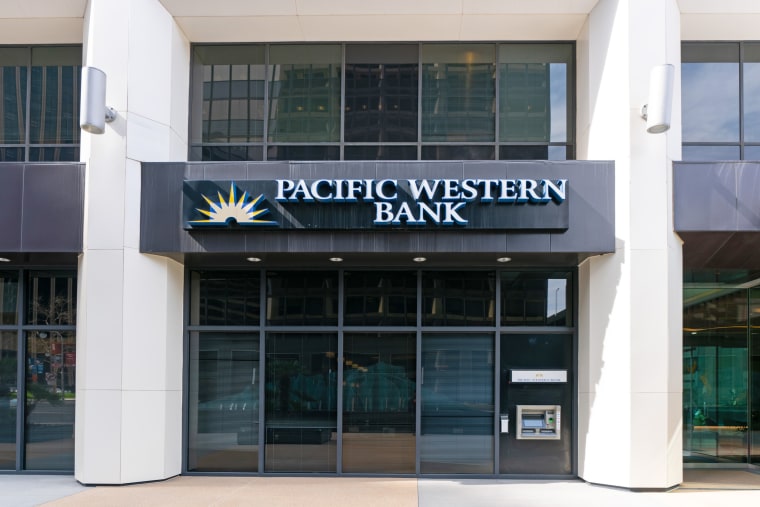Regional bank stocks fell sharply Tuesday as the fallout from the third major bank failure this year continued to put pressure on the sector.
Shares of PacWest fell 24% on Tuesday and was on track for its fourth-straight negative session. The stock was halted for volatility multiple times.
The California-based bank was not the only regional lender under pressure. Shares of Western Alliance dropped 20%. The SPDR S&P Regional Banking ETF (KRE) sank 7.6%.
The steep declines deepened losses in the sector from Monday. Over the weekend, regulators seized troubled regional bank First Republic and sold it to JPMorgan Chase.
First Republic is the third failure of a large regional bank this year, following Silicon Valley Bank and Signature Bank in March.
The reasons for Tuesday’s declines were not immediately clear. JPMorgan Chase CEO Jamie Dimon said Monday that the initial phase of the regional bank crisis was “over,” and there was cautious optimism among Wall Street analysts that the deposit flight issues had been contained.
First Republic reported a decline in deposits of about 40% during the first quarter, raising questions about how the bank could survive on its own.
Most other regional banks reported smaller deposits declines, however, and some like PacWest reported that deposits began rebounding in late March.The recent bank failures and expected regulatory changes in response to them have also raised questions about the long-term profit outlooks for mid-sized regional banks.
“We believe that banks with assets >$500B and <$60B are the clearest winners in the new world order, while there is likely to be a no-man’s land between $80-120B, as banks in this range may need to shrink to avoid new regulations or more actively engage in M&A to increase scale and absorb regulatory costs,” KBW analyst David Konrad said in a note to clients on Sunday.
Another issue for the regional banks is the possibility of more Fed rate hikes. Higher rates will make it more costly for the banks to hold on to their deposits while also lowering the market value of the long-dated bonds and loans on their books.
Concern about the market value of those assets was one of the sparks for initial run on Silicon Valley Bank in March.
The central bank is expected to raise its benchmark rate by 0.25 percentage points on Wednesday. The California-based bank was not the only regional lender under pressure. Shares of Western Alliance dropped 16%. The SPDR S&P Regional Banking ETF (KRE) sank 6.9%.
The steep declines deepened losses in the sector from Monday. Over the weekend, regulators seized troubled regional bank First Republic and sold it to JPMorgan Chase.
